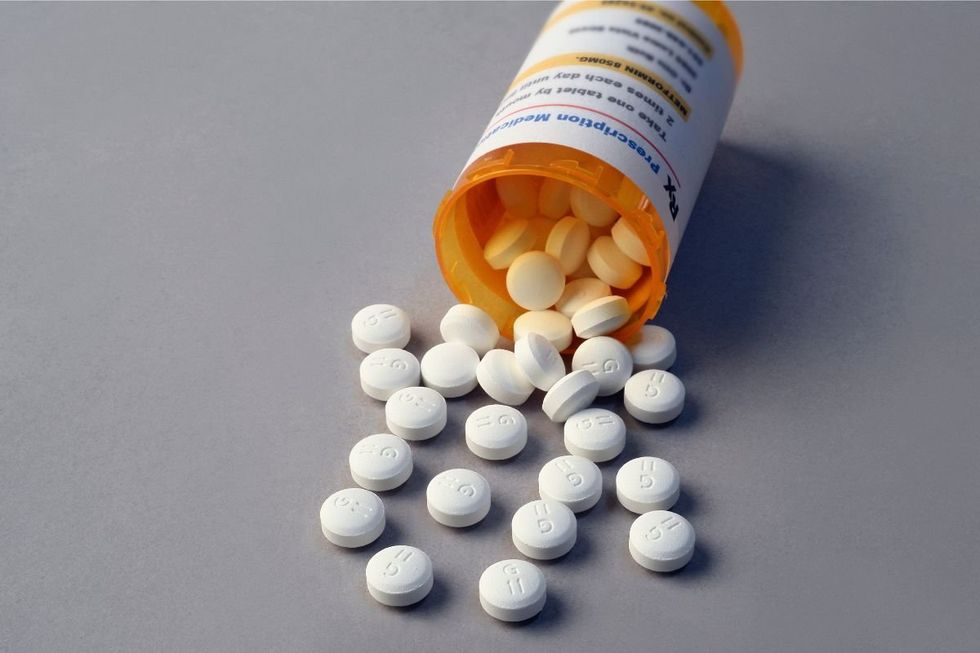'A problem': Drug taken by millions shown to 'blunt' the health benefits of exercise, scientists warn

WATCH NOW: Doctor Alasdair Scott discusses how to avoid diabetes
|GBN

New findings suggest that taking metformin could undermine the full benefits of exercise
Don't Miss
Most Read
Trending on GB News
A diabetes prevention drug taken by millions might actually be undermining the very exercise routines meant to help patients stay healthy.
New research from Rutgers University has found that metformin, one of the most commonly prescribed medications for preventing type 2 diabetes, appears to reduce the benefits people normally get from physical activity.
The findings, published in The Journal of Clinical Endocrinology & Metabolism, suggest that combining metformin with exercise - standard practice since 2006 - may not deliver the health improvements doctors and patients expect.
It transpired that the medication weakens several key benefits of exercise, including better blood vessel function, improved fitness levels and enhanced blood sugar control.
TRENDING
Stories
Videos
Your Say

The medication seemingly weakens several key benefits of exercise
|GETTY
This discovery raises serious questions about current treatment guidelines that recommend using both approaches together.
Scientists performed the study on 72 adults at risk of developing metabolic syndrome - a collection of conditions that increase the chances of both diabetes and heart disease.
Participants were divided into four groups to test different combinations. Some did high-intensity exercise with a placebo pill, others combined high-intensity workouts with metformin.
The remaining volunteers either did low-intensity exercise with a placebo or paired gentler workouts with the medication.
For 16 weeks, the team tracked how participants' blood vessels responded to insulin - a crucial measure of vascular health.
This response determines how well vessels can widen to deliver oxygen, hormones and nutrients throughout the body after meals.
The researchers particularly wanted to see whether exercise intensity made any difference when combined with metformin.
The results revealed that exercise alone successfully improved how blood vessels responded to insulin, allowing better blood flow to muscles - exactly what helps move glucose from the bloodstream into body tissues after eating.
LATEST DEVELOPMENTS
But when participants took metformin alongside their workouts, these improvements were noticeably reduced.
Evidence also emerged that the medication limited gains in aerobic fitness and dampened positive changes in inflammation and fasting blood glucose levels.
"Blood vessel function improved with exercise training, regardless of intensity," said the study's lead author and professor in Rutgers' Department of Kinesiology and Health, Steven Malin.
"Metformin blunted that observation, suggesting one type of exercise intensity is not better either with the drug for blood vessel health."
The findings suggest patients taking both treatments aren't getting the protection they expect.
"If you exercise and take metformin and your blood glucose does not go down, that's a problem," Malin explained.
"People taking metformin also didn't gain fitness. That means their physical function isn't getting better, and that could have long-term health risks."
These fitness improvements matter for everyday life - from climbing stairs to playing with children or staying socially active. When these gains are reduced, it can affect the overall quality of life.
The researchers stress that patients shouldn't stop taking metformin or quit exercising based on these findings.
Rather, the study shows that doctors need to monitor how patients respond to the combined treatment more carefully.
Malin hopes future research will help identify ways to preserve the benefits of both approaches.
The biological mechanism behind this interference is still being studied. Malin explained that metformin works partly by blocking certain mitochondrial processes, which helps reduce oxidative stress and regulate blood sugar.

Diabetes patients taking metformin may not get the full benefits of exercise
|GETTY
However, this same action may prevent the cellular changes that exercise typically triggers - including improved mitochondrial efficiency and better aerobic performance.
Essentially, what makes metformin effective might also stop the body from fully adapting to physical training.
This research is particularly significant given that nearly 35 million Americans live with type 2 diabetes, with prevention strategies often combining lifestyle changes and medication.
"We need to figure out how to best recommend exercise with metformin," Malin said. "We also need to consider how other medications interact with exercise to develop better guidelines for doctors to help people lower chronic disease risk."
Our Standards: The GB News Editorial Charter
More From GB News













